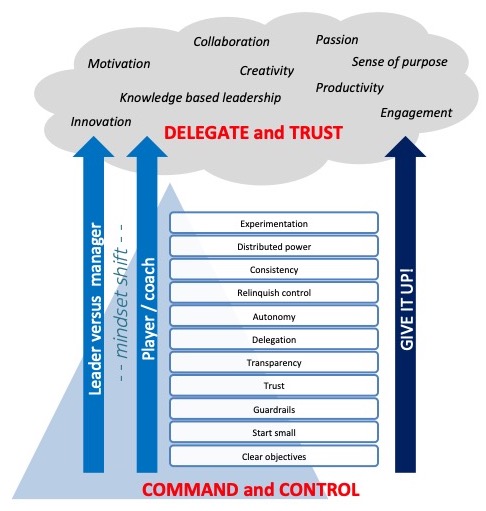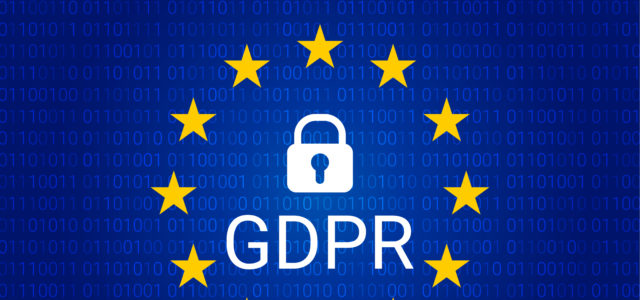Transitioning people through constant change. In this series of posts, I am exploring the Give It Up model in which we move away from the command and control of manager to the delegation and trust of true leaders.

Creativity
Delegation and trust sparks creativity. Creativity is vital for business growth. Creativity combined with innovation allows organizations to resolve problems quickly and seize opportunities to stay ahead of the game.
Creativity can generate a sense of excitement and passion. It can increase curiosity, which increases a desire to learn. A learning organization is a leading one. Creativity is no longer a ‘nice to have’, it is a ‘must have’ for successful organizations.
Creativity leads to increased engagement, morale, collaboration, teamwork, motivation, and productivity.
Pixar Animation Studios’ success is due to creativity. The company’s keys to unleashing the creativity behind animated classics such as Monsters, Inc., Toy Story, Cars, and Finding Nemo include mutual trust, honesty, learning from mistakes, and keeping an open mind to untested ideas so that new concepts are not dismissed before they’ve had a chance to be explored.
Passion
Passion is an outcome of delegation and trust. Passion in the workplace is important because passionate workers strive to do better. In our world of constant and relentless change, organizations need employees who are passionate because they have resilience and a desire to learn and improve. Organizations with passionate and resilient employees will have the resilience to thrive in our VUCA world.
Passion is the result of being allowed to experiment and to fail, having autonomy, giving up control, and distributing power.
Passion in the workplace is a positive and exciting energy. It is also contagious. When an employee is passionate and radiates excitement, others will look for the same. It can be a strong motivator.
Passion increases productivity, leads to creativity and innovation, increases energy, motivation, morale, and engagement.
Sense of purpose
When employees have distributed power, autonomy, clear objectives, and trust, they also have a sense of purpose. Whereas employee engagement was once driven by salary and working conditions, this has now been replaced with a desire to work with a sense of purpose. When employees have a sense of purpose, they are more engaged, committed, and motivated to make a difference.
Millennials entering the workplace are looking for a sense of purpose as opposed to a large pay packet. They want a meaningful job and the ability to make a difference through innovation. Organizations wanting to attract young talent have to create a sense of purpose through delegation and trust.
Game score
Winning teams don’t do great things because they were told to. They have the power to make great things happen. They are free to experiment, create and innovate.
In subsequent posts in this series, I will be exploring the additional elements of the Give It Up model.
Article by channel:
Everything you need to know about Digital Transformation
The best articles, news and events direct to your inbox
Read more articles tagged: Change & Transformation, Featured, Leadership







